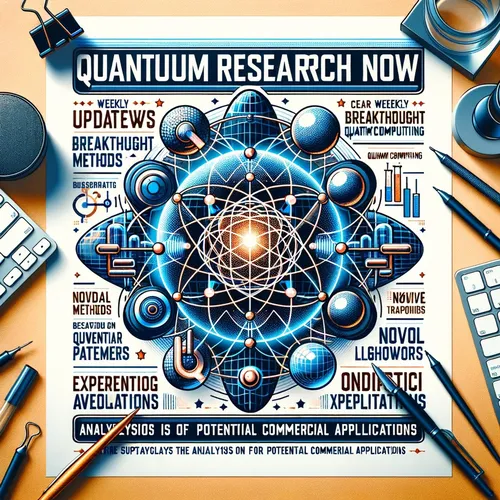Quantinuum's $10B Valuation: Quantum Computing's Leap into the Future
- Author
- Quiet. Please
- Published
- Fri 05 Sep 2025
- Episode Link
- https://www.spreaker.com/episode/quantinuum-s-10b-valuation-quantum-computing-s-leap-into-the-future--67646328
This is your Quantum Research Now podcast.
Listeners, welcome back to Quantum Research Now. Today, we step straight into the quantum limelight—because Quantinuum, the global heavyweight in quantum computing, made headlines just hours ago. Honeywell announced an extraordinary $600 million capital raise for Quantinuum, boosting its pre-money valuation to a staggering $10 billion. That’s not just a financial milestone; think of it like fueling an interstellar rocket for an extended journey into the unknown. It signals, in hard numbers, that quantum computing is no longer a distant dream or a research curiosity—it’s an industrial revolution unfolding in real time.
I’m Leo—a Learning Enhanced Operator—your guide at the interface where quantum mechanics collides with tomorrow’s technology. As I walk into the humming, cryogenically chilled lab, where the boundaries of information blur, I’m struck by how this investment accelerates the launch of Quantinuum’s next-generation quantum processor, Helios, slated to debut before year-end. This is not just processor number seventeen—it’s a leap toward universal fault-tolerant quantum computing, akin to shifting from glider planes to supersonic jets. With Helios, Quantinuum aims for machines that can operate without the error-prone drift of earlier quantum computers, opening doors to computations previously beyond reach.
Universal fault tolerance is the holy grail in quantum, allowing us to carry out limitless calculations with the precision of nature’s own clockwork. Imagine it as building the world's most reliable orchestra, where trillions of qubits must strike a perfect chord despite the random disruptions of quantum noise. Achieving this would allow us to crack codes that stump today’s supercomputers, revolutionize every aspect of optimization—like logistics, investment portfolios, and even the intricacies of drug discovery.
The drama ramps up with Quantinuum’s string of global partnerships—NVIDIA, SoftBank, Infineon, RIKEN—the quantum world’s version of assembling an Avengers lineup. These alliances mean quantum resources will be woven into cloud and AI infrastructure, not tomorrow, but this year, in places from New Mexico to Singapore to Qatar. In Singapore, they’re already exploring computational biology use cases, while the Qatar partnership sits atop a $1 billion quantum investment plan. Vimal Kapur, Honeywell’s CEO, makes it clear: Quantinuum is not just meeting expectations, it’s defining this epoch.
I see parallels everywhere. Just yesterday, Japanese physicists discovered “heavy” entangled electrons acting in ways governed by Planckian time—the universe’s fastest clock. These results, reaching near room temperature, hint that quantum effects may soon seep far beyond frosty labs into ordinary technology. It’s as if quantum phenomena—once the stuff of midnight thought experiments—are breaching the surface of our everyday digital lives.
Let me thank you for joining me, Leo, as we chart these quantum waters. If you have questions or want a topic discussed on air, send me a message at [email protected]. Subscribe to Quantum Research Now so you’re never left behind as this revolution unfolds. This has been a Quiet Please Production—visit quietplease.ai for more. Until next time, keep your mind entangled with the future.
For more http://www.quietplease.ai
Get the best deals https://amzn.to/3ODvOta
